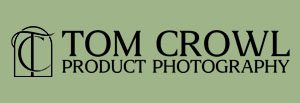Branding imposter syndrome is a pervasive issue affecting many individuals, especially those striving to build a personal or professional brand.
It’s the nagging feeling that you’re a fraud, despite evidence of your competence and success.
This article will explore what branding imposter syndrome is, its symptoms, strategies to overcome it, and the positive outcomes of moving past these self-doubts.
What is Branding Imposter Syndrome?
Branding imposter syndrome is the belief that one’s success is undeserved and that one is not as competent as others perceive them to be.
This phenomenon affects people across various industries, including high achievers and creatives, who often doubt their skills and fear being exposed as a fraud.
If you suffer this, you are not alone.
Branding imposter syndrome is a widespread issue among new business owners and entrepreneurs. Here are some key statistics to highlight its prevalence:
- 84% of entrepreneurs and small business owners experience imposter syndrome at some point in their careers. Over 20% worry about being “found out” for lacking knowledge or ability, and an additional 20% believe their success is due to luck (Kajabi).
- 78% of business leaders report experiencing imposter syndrome at work, with 59% considering leaving their role due to these feelings.
- 24% of small business owners have suffered from imposter syndrome, with 56% fearing failure, 51% comparing themselves to others, and 38% second-guessing every decision (AXA Health).
Now let’s take a look at the symptoms and how to overcome this problem.

Symptoms of Branding Imposter Syndrome
- Self-Doubt: Constantly questioning your abilities and feeling inadequate.
- Perfectionism: Setting unrealistic standards and feeling disappointed when they aren’t met.
- Overworking: Compensating for perceived inadequacies by working excessively hard.
- Fear of Failure: Avoiding new opportunities due to fear of not measuring up.
- Difficulty Accepting Praise: Dismissing compliments and attributing success to luck rather than skill.
Overcoming Branding Imposter Syndrome
- Acknowledge Your Feelings: Recognize and name your imposter thoughts. Understanding that these feelings are common and not based on reality is the first step toward overcoming them.
- Document Your Achievements: Keep a record of your successes and positive feedback. Reviewing this list during moments of self-doubt can reinforce your sense of competence.
- Set Realistic Goals: Break down large projects into manageable tasks and set achievable goals. Celebrate small victories to build confidence gradually.
- Seek Support: Talk to mentors, colleagues, or a therapist who can provide an outside perspective and help you recognize your worth. Sharing your experiences with others can normalize your feelings and reduce their intensity.
- Continuously Learn and Grow: Engage in continuous learning and development. By improving your skills and staying current, you can boost your confidence and reduce feelings of inadequacy.
Look Confident, Feel Confident
Investing in professional branding and custom imagery can significantly enhance your confidence. High-quality product and custom images help present a polished and professional appearance, making you feel more confident in your brand. This investment not only boosts your self-esteem but also projects a prestigious image to consumers, fostering trust and admiration .
Results of Overcoming Imposter Syndrome
- Increased Confidence: Successfully addressing imposter syndrome leads to greater self-assurance and willingness to take on new challenges.
- Improved Performance: With reduced anxiety and self-doubt, you can focus more effectively on your tasks, leading to higher productivity and better outcomes.
- Enhanced Creativity: Freed from the constraints of perfectionism, you can experiment and innovate more freely, enriching your brand’s uniqueness and appeal.
- Stronger Relationships: As you become more confident, your interactions with clients, colleagues, and audiences become more authentic and impactful.
Branding imposter syndrome is a common but conquerable challenge. By acknowledging your feelings, documenting your achievements, setting realistic goals, seeking support, committing to continuous learning, and investing in professional branding, you can overcome these self-doubts.
The journey to overcoming imposter syndrome not only strengthens your brand but also enhances your overall well-being and professional satisfaction. Remember, your success is earned and well-deserved.
Discover How Professional Photography Can Elevate Your Brand
Get a Custom Quote Tailored to Your Specific Needs

Take a minute to fill out the form below. Doing so will help me understand your product photography needs. Once I receive your information, I'll reach out to you personally to discuss the project in more detail and create a customized quote for you.
You may also text me at: 410-596-4127 or E-mail me at: tom@tomcrowl.com


